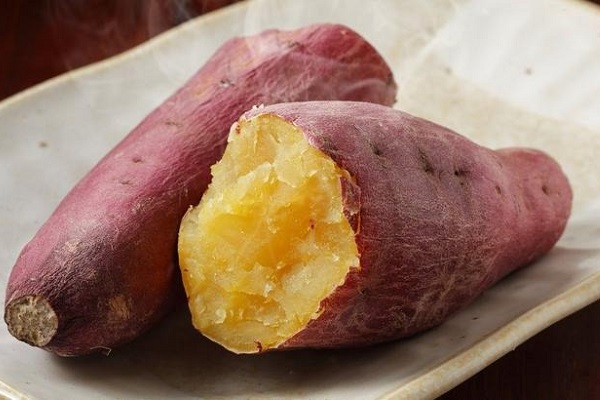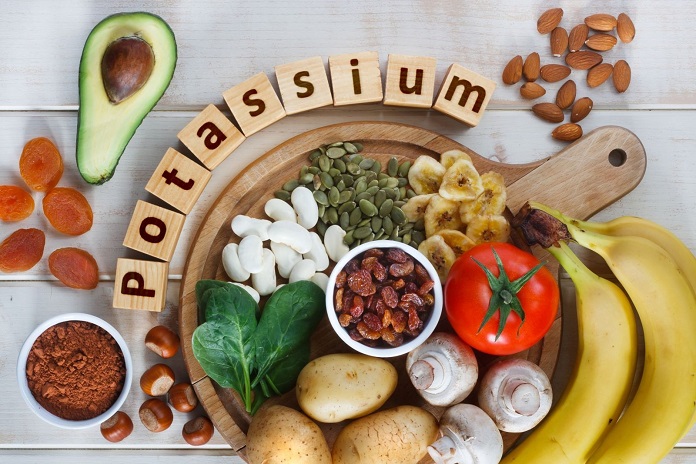Potassium helps to bulk our body, potassium-rich foods like bananas, potatoes, dried fruits, meat, and milk are best friends for those trying to bulk their body. Also, a diet rich in high potassium and low in sodium can help lower blood pressure and reduce the risk of heart disease and stroke.
Similarly, when we don’t get enough potassium, we will experience muscle weakness or in more severe cases such as potential heart issues due to a lack of muscle contractions.
How much Potassium do we need per day?
The amount of potassium we need per day varies depending on factors such as age, sex and overall health. Adults should generally aim to consume around 3,500 to 4,700 milligrams (mg) of potassium per day.
- Adults (18 years and older): 3,500 to 4,700 mg DV
- Adolescents (14 to 18 years): 3,000 to 4,700 mg DV
- Children (9 to 13 years): 2,500 to 3,000 mg DV
- Children (4 to 8 years): 2,300 mg DV
- Toddlers (1 to 3 years): 2,000 mg DV
- Infants (7 to 12 months): 700 mg DV
- Infants (0 to 6 months): 400 mg DV

Source: Forbes
What does potassium do to the body?
Food that is rich in potassium – 10 Best Foods with Potassium Rich for Diets
Here is the list of the 10 best foods with potassium rich for your diet, adopting this food in your diet plan can be more beneficial.
1. Bananas:

As we already know bananas are the best fruits that are rich in potassium, however, they provide a quick source of energy, making them a popular choice for athletes and bodybuilders. Bananas are a great choice for those trying to bulk their body. Not bananas have a higher potassium content, however, bananas offer quick-release carbohydrates in the form of natural sugars like glucose, fructose, and sucrose, supplying rapid energy—a boon for powering through workouts and replenishing glycogen post-exercise. Similarly, one medium banana contains approximately 422 mg of potassium
2. Sweet Potatoes:

3. Avocado:

Avocado is prominent for its creamy texture which is rich in flavour, it is a great choice for individuals aiming to bolster their potassium intake while embarking on a bulking journey. Expect potassium avocados to be rich in healthful nutrients, including heart-healthy monounsaturated fats, dietary fiber, and vitamins E, K, and B vitamins it is a nutritional powerhouse. To make it more delicious you can slice it onto toast mashed into guacamole, or blend it into smoothies. Similarly, one medium Avocado contains approximately 975 mg of potassium.
4. Salmon:

Salmon is also considered an excellent choice for those who are looking to boost their potassium intake while pursuing a bulking regimen. Expect Salmon avocados to be rich in healthful nutrients, including omega-3 fatty acids, which contribute to heart health, reduce inflammation, and support overall well-being. To make it more delicious you grilled, baked, or pan-seared, salmon offers versatility and flavour, making it a welcome addition to any bulking diet. Similarly, 3 ounces of cooked Salmon contains Approximately 534 mg of potassium.
- Sweet Potato (1 medium, cooked): Approximately 542 mg
- Banana (1 medium): Around 422 mg
- Spinach (1 cup, cooked): Roughly 839 mg
- Avocado (1 medium): Approximately 975 mg
- Salmon (3 ounces, cooked): About 534 mg
- Kidney Beans (1 cup, cooked): Around 713 mg
- Yogurt (1 cup, plain, low-fat): Approximately 531 mg
- Tomato (1 medium): Roughly 292 mg
- Mushrooms (1 cup, cooked): About 305 mg
- Coconut Water (1 cup): Approximately 600 mg
- Potatoes (1 medium, baked): Roughly 926 mg
- Apricots (3 medium, dried): Around 259 mg
- Oranges (1 medium): Approximately 237 mg
- Lentils (1 cup, cooked): About 731 mg
- Brussels Sprouts (1 cup, cooked): Around 504 mg
- Cantaloupe (1 cup, diced): Roughly 417 mg
- Beet Greens (1 cup, cooked): Approximately 1309 mg
- Acorn Squash (1 cup, cooked): About 896 mg
- Blackberries (1 cup): Around 233 mg
- Pomegranate (1 whole): Approximately 666 mg
FAQs
Why are potassium-rich foods important for bulking diets?
As we already know potassium-rich foods are an essential part of the bulking diet because they support muscle function, nerve transmission, and overall hydration.
Which are the best potassium-rich foods for bulking diets?
Some of the best potassium-rich foods for bulking diets are, Banana, Sweet Potato, Spinach, and Avocado, Salmon, Kidney Beans, Yogurt, Tomato, Mushrooms, Coconut Water, Potatoes, Apricots, Oranges, Lentils, Brussels, Sprouts, Cantaloupe, Beet Greens Acorn, Squash Blackberries, Pomegranate
How do potassium-rich foods contribute to muscle growth?
Potassium-rich is the best supporter of muscle growth by promoting proper muscle function and aiding in muscle recovery after intense workouts Potassium helps regulate fluid balance within muscle cells, facilitates nutrient transport, and assists in the contraction and relaxation of muscles
Also, read more about Bean Sprouts Facts: It’s Benefits, Risk, and How it is made? – Sleeps Eight
